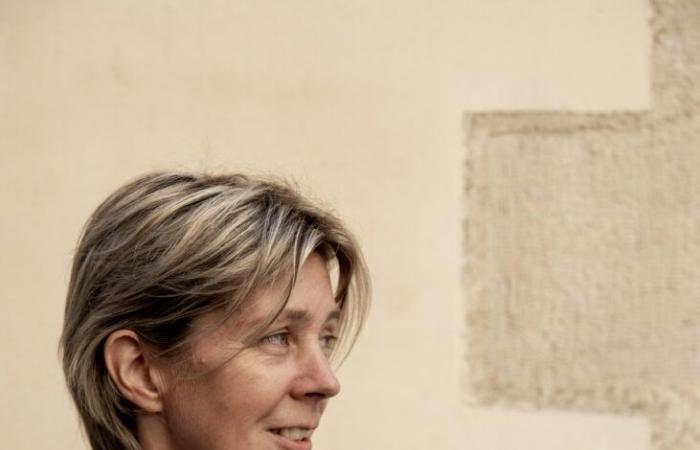Livres Hebdo: You have just won the Goncourt prize for high school students. What is your reaction?
Sandrine Collette : Since I heard the news, I’ve had a hard time coming back to earth… It’s wonderful because for once, as a writer, you can’t find the words. It’s an immense and unexpected joy too, because, given the number of literary prizes, we try to preserve ourselves by convincing ourselves that we won’t win anything, this allows us to be surprised when it happens!
What does this award mean to you?
For me, it is something indisputable which has all the more value as it is a reader’s prize, that is to say a prize from the heart, free and sincere.
You were a finalist for the Goncourt prize, does this prize bring you another form of recognition?
Yes I believe. “Another form” is really the appropriate expression because the two prizes are very different and come from very different worlds as well. Moreover, the booksellers that I was able to meet told me that they hoped that I would be a winner, because according to them, the Goncourt des Lycéens prize is the greatest reward there is.
How do you feel about the idea that it was high school students who distinguished your book?
I find it very comforting and refreshing that it was high school students who chose my book, because they have a different approach to reading. I am all the more delighted because there were, in my novel, many messages addressed to young people that they were able to capture.
They say that young people no longer read, but that is not true. As part of Goncourt, they also agreed to let themselves be touched by the very different novels in the selection, which is admirable. Trying to include reading in their school curriculum is therefore, in my opinion, a laudable initiative because while some people know that literature is not necessarily something old or boring, others read their first book in high school. Teachers have also told me that they have lots of wonderful stories of young people discovering literature.
Why did you write Madelaine before dawn ?
The chance of reading… I read a lot of books about the great winters in France and the damage that it caused, it was an extremely romantic setting. I therefore wanted to shake up this immutable environment, if I dare say so, by imagining a little girl, who according to me, corresponds to everything that is potential revolt and non-resignation. In addition, in History, most acts of revolt started from women, even if men subsequently followed and helped them. My heroine therefore allowed me to highlight the strength that was found in female fragility, because when we are considered fragile, we are obliged to be stronger.






